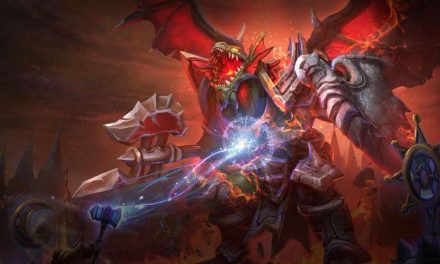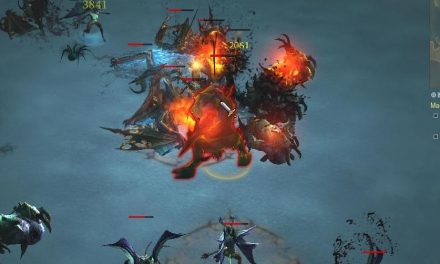There’s a business philosophy that’s easy to spread but difficult to obey: “don’t throw good money after bad.” An extension of the sunk-cost fallacy, the idea that more energy or money can save a failing project or endeavor isn’t always true; sometimes, it is much better to cut one’s losses and start fresh. This is made all the more difficult by the feeling that since so much has already been invested, it would be a “waste” to pull out before success, ignoring the fact that additional resources could just compound the failure.
Heroes of the Storm is a game all about managing risk, calculating the potential return on investment for every action. Much like with games like chess, the best players can extrapolate future scenarios from the current position and work through a decision tree that will lead to the highest probability of success. With scenarios and circumstances changing with every click of the mouse, whole strategies or endeavors can be made obsolete or irrelevant in an instant. It is essential that players not hold to a particular plan of action beyond its effective lifespan.
I remember many evenings in my early HOTS career where our voice chat was filled with angry complaints that players were being chastised for following orders—the problem was, the game situation had moved on and evolved between the time when the order had been given and when the player had started to adhere to the new plan; by the time less-responsive players were able to set their mind to a particular task, that task was no longer in the group’s best interest.
I adapt. You do not. I live. You will not.
—Dehaka, Primal Zerg
Continuing to adhere to a plan that no longer fits the battlefield situation is a sure-fire way to be caught out of position, outmaneuvered, and ultimately reeling from a more adaptive enemy. While the game offers short-cuts to announce desired actions like “attack this person” or “take this mercenary camp,” it isn’t nearly as easy to retract those commands, other than spamming “retreat.” Thus, newer players may be basing their decision-making on outdated information.
If I am playing a tanky character like Johanna and manage to catch an enemy assassin out of position, I may broadcast to the team that there’s an opportunity to kill them. Chasing them into some bushes, if I am suddenly jumped by two more heavy damage dealers lurking inside, I may be too busy trying to save my own skin to broadcast to the team that the situation has changed; I’m relying on their ability to see the battlefield and to adapt to an evolving situation to know not to dive in blindly to a situation that has turned sour.
This idea of “not making a bad situation worse” directly relates to a recent article on Trickle Deaths, wherein which the mechanics of how staggered losses can have a disproportionate effect on the tide of battle. Often players are so focused on a given course of action—whether advised by teammates or their own goals—that they lose sight of an objective and critical risk-versus-reward evaluation.
A character sacrificing themselves for a great goal, such as taking down an enemy keep or finishing the kill that would grant Zul’jin his Headhunter quest, can often be worth it; a team may have multiple assassins or bruisers, and losing one for the sake of removing the only enemy healer or tank is arguably a victory in the damage dealer’s favor. Diving in against a superior foe—whether through sheer numbers, traits, or map position—is a risky move, even before one considers that most players are bad about cutting their losses and fleeing to safety once they’ve committed.
It’s easy to snipe at and criticize other players for overextending—attempting to press an advantage too far—or for being out of touch with the current (and endlessly-changing) state of the battlefield, but before fingers furiously fly across the keyboard I hope that everyone takes a moment to reflect and recognize that they themselves have those goals or opportunities which they take too far.
While the game can’t be won through defense alone, often being more cautious than ambitious will leave your team in a much better position, particularly if the other side is constantly sacrificing themselves in foolish attempts to finish a goal or objective. Patience and opportune strikes will win the day.
Header image taken by unknown photographer, featured in the article Mass Media: Adding Fuel to the Fire
















